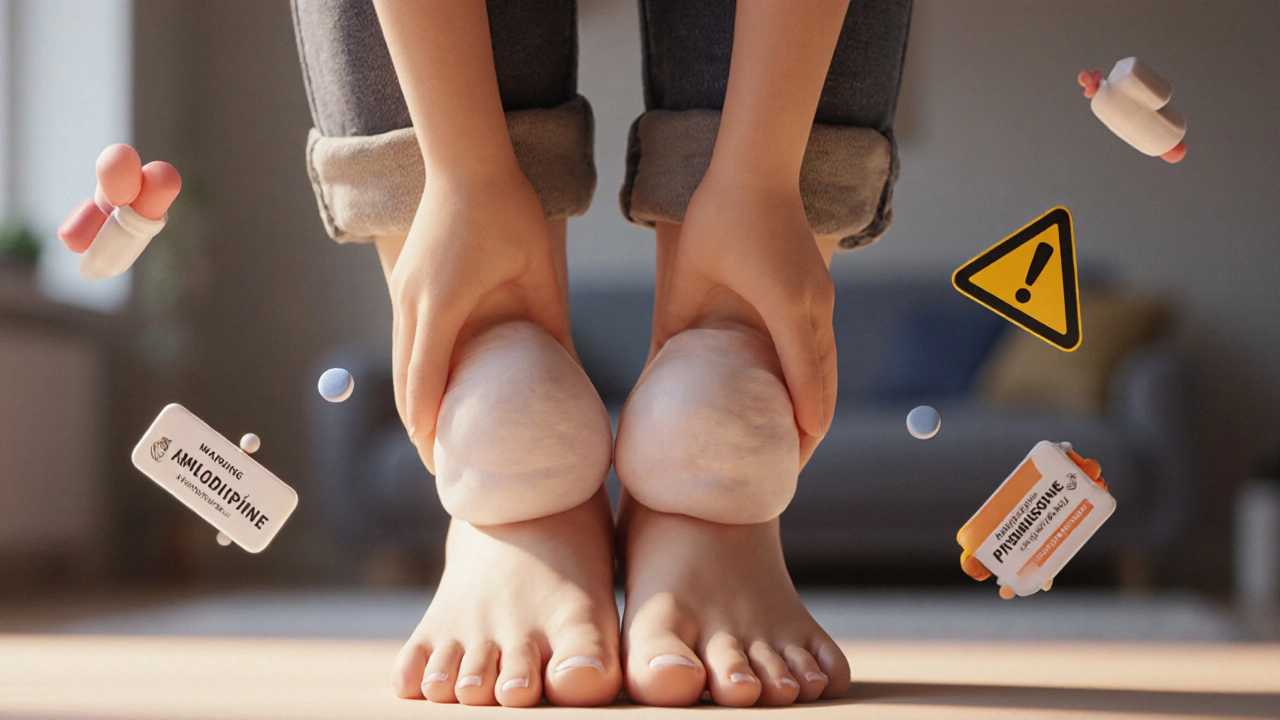Medication Swelling: Causes, Common Drugs, and What to Do
When your ankles, hands, or face suddenly puff up, it’s not always just water retention—it could be medication swelling, a side effect caused by certain drugs that disrupt fluid balance in the body. Also known as drug-induced edema, this reaction isn’t rare, and it’s often mistaken for weight gain or aging. Many people don’t realize their pills are the cause until the swelling gets bad enough to notice.
Some of the most common culprits include calcium channel blockers, blood pressure medications like amlodipine and nifedipine that relax blood vessels but can leak fluid into tissues. NSAIDs, like ibuprofen or naproxen used for pain and inflammation, also interfere with kidney fluid control. Even steroids, whether taken orally or injected, can trigger fluid buildup by altering hormone signals that manage sodium and water. And yes, some diabetes drugs like pioglitazone and rosiglitazone can cause swelling too—sometimes so severe it’s hard to walk.
It’s not just about the drug itself. Age, kidney function, heart health, and how long you’ve been taking the medicine all play a role. Older adults are more likely to notice swelling because their bodies process fluids slower. If you’ve been on a new medication for a few weeks and your shoes feel tight, your rings don’t fit, or your face looks puffy in the morning, it’s worth tracking. Take a photo, note when it started, and check if it’s worse after standing all day. These details help your doctor decide if it’s the drug or something else—like heart failure or liver disease.
Stopping the medicine isn’t always the answer. Sometimes switching to a different drug in the same class helps. Other times, adding a low-dose diuretic clears the fluid without ditching the treatment. But never quit cold turkey—especially with blood pressure or hormone meds. Talk to your provider first. They can check your electrolytes, kidney numbers, and blood pressure to make sure the swelling isn’t hiding something worse.
What you’ll find below are real, practical guides from people who’ve dealt with this exact issue. Some posts explain which medications are most likely to cause swelling, others show how to tell if it’s harmless or dangerous, and a few break down what your doctor might suggest next. No fluff. No guesses. Just clear, tested advice from patients and providers who’ve been there.
Swelling from medications like amlodipine, gabapentin, or prednisone is common-but not always harmless. Learn the signs that it’s just a side effect versus a warning of heart, kidney, or blood clot problems.
Oct, 30 2025

